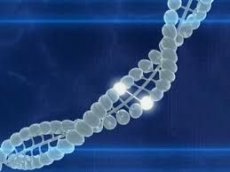New publications
Food has the ability to alter human genes
Last reviewed: 30.06.2025

All iLive content is medically reviewed or fact checked to ensure as much factual accuracy as possible.
We have strict sourcing guidelines and only link to reputable media sites, academic research institutions and, whenever possible, medically peer reviewed studies. Note that the numbers in parentheses ([1], [2], etc.) are clickable links to these studies.
If you feel that any of our content is inaccurate, out-of-date, or otherwise questionable, please select it and press Ctrl + Enter.

Chinese scientists from Nanjing University have shown that molecules that enter the human body with plant foods influence the functioning of genes.
This discovery was published in the journal Cell Research. The study concerned microRNAs – sequences of 19-24 nucleotides that are not involved in protein synthesis, but perform very important regulatory functions in the human body. By binding to messenger RNA (mRNA), they directly affect the process of protein synthesis. Their role in the development of various pathologies, such as deafness and diabetes, has recently been proven.
Project leader Chen-Yu Zhang and his colleagues found a type of microRNA (MIR168a) that is characteristic of rice cells in the blood of Chinese people. The scientists were surprised by the fact that these molecules, being foreign, were not broken down into simpler molecules in the digestive tract, but were present intact in the blood.
The mechanism of action of MIR168a was studied on cell culture and modified laboratory mice. It was found that as a result of MIR168a binding to mRNA, there is a decrease in the synthesis of the low-density lipoprotein receptor in the liver, which leads to an increase in the level of LDL in the blood plasma. Thus, biologists have proven that foreign microRNA of plant origin, entering the human blood unchanged, changes metabolism.
This process can be compared to gene transfer in prokaryotes, when genes are transferred to unrelated organisms. This is the mechanism observed in the development of antibiotic resistance in bacteria.
The results of this study show that food is not only a source of nutrients, but also foreign information that reprograms our genes.
The authors of the article hope that this discovery opens up new possibilities for the development of plant biotechnology.

 [
[